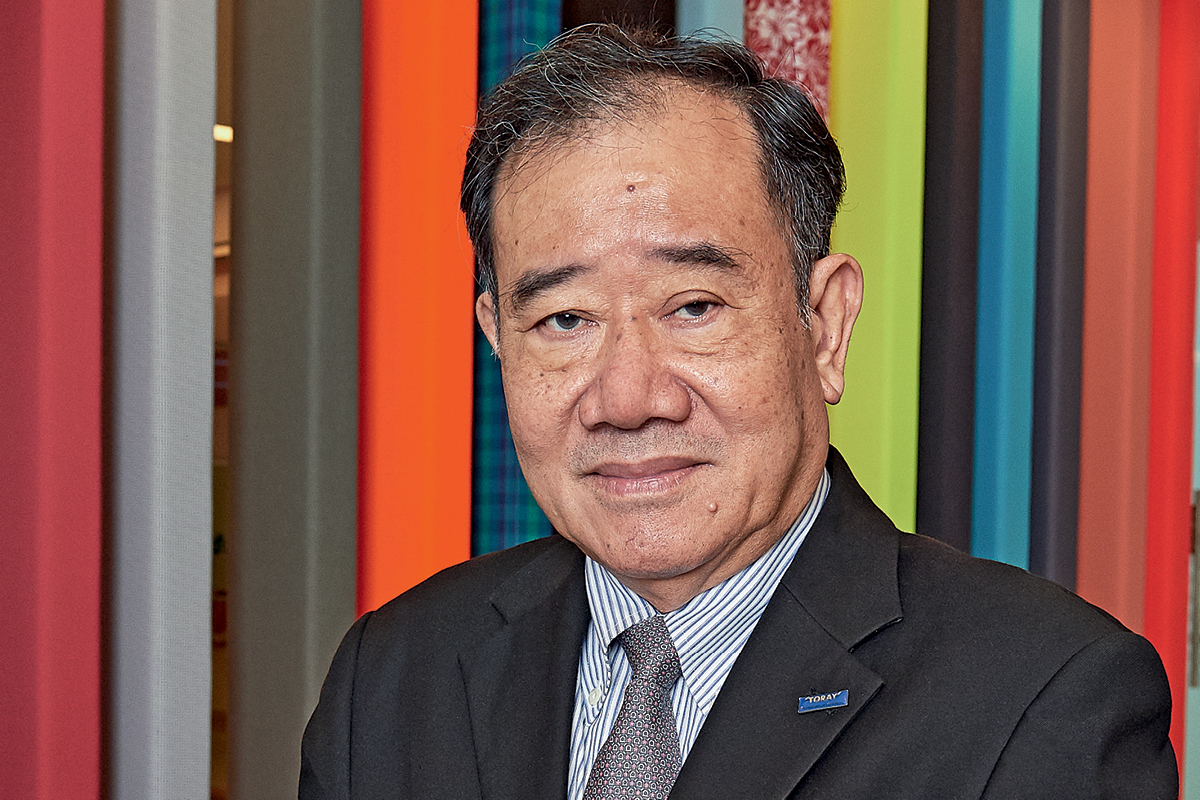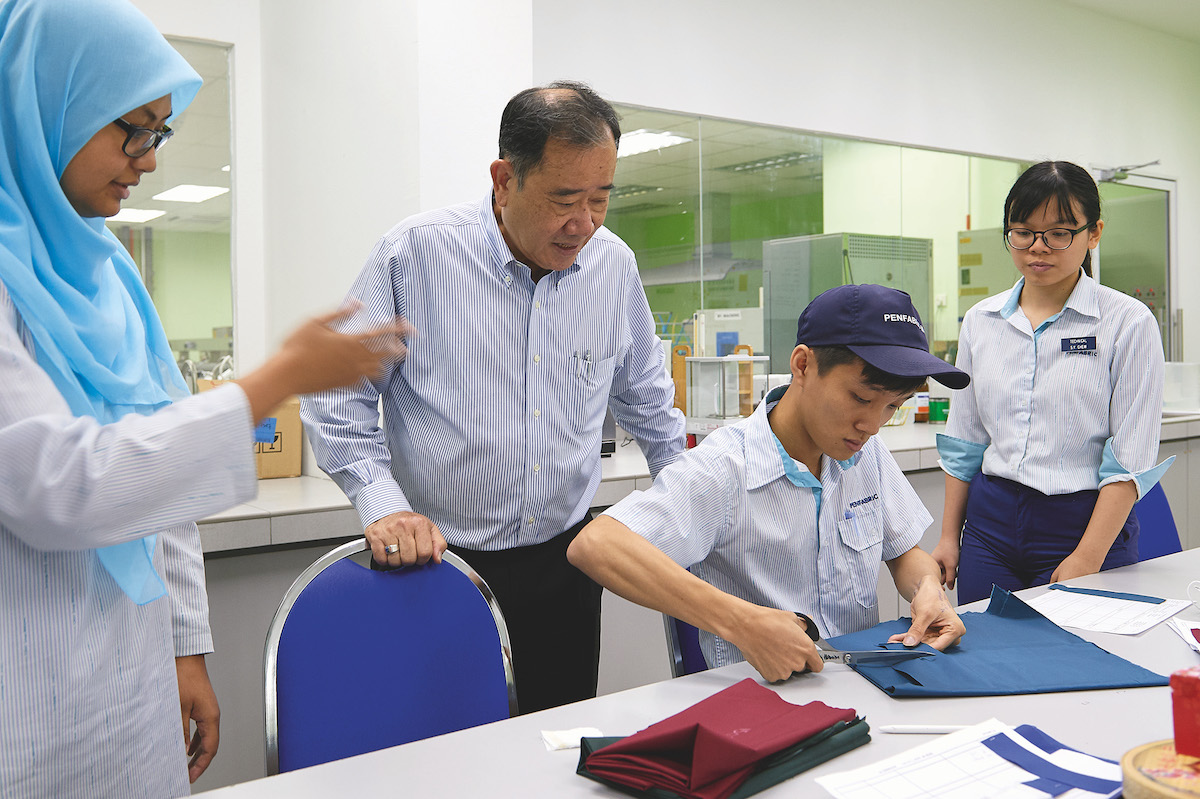Material world: Teh Hock Soon
Toray Group (Malaysia)’s Chief Representative Teh Hock Soon is taking lessons from the electronics industry to take the materials GROUP to the next level.
Teh Hock Soon is a man of action. He exercises every morning – taking brisk walks from as early as 5am – and goes hiking every weekend. "Exercise is a very important part of my life," says the Chief Representative of Toray Group (Malaysia) cum Managing Director of Penfabric.

"I want to keep myself active and fit; to have a healthy mind and body so I can do a good job." Being action-minded, Teh is frequently told he is good at crisis management. "I like action, not just words," he says.
"I attend to many things at once and keep myself up to date. In times of crisis, I try to keep the team engaged and motivated, working long hours myself if needed. When there is nothing on the line, my mind is always whirling with thoughts and ideas on how to do things in a better way from fresh perspectives."
Toray Group (Malaysia), wholly owned by chemical conglomerate Toray Japan, produces a range of materials including textiles, fibres, films and plastics. The Group operates eight manufacturing facilities in Penang and one joint venture in Pahang.
Teh describes the Group’s products as being "like Intel chips inside a computer" – they are critical resources, though often unseen. "For example, Toray makes carbon fibre, which these days is widely used to make components of aeroplanes and high-performance cars," he explains.
Teh highlights that as the world’s population booms, demand for materials will increase, leading to greater discoveries and more widespread uses. Teh grew up on Penang Island and studied economics at the University of Science, Malaysia.
After graduating in 1976, he signed up for his first job, which happened to be with Toray Group, and he has been there ever since.
The electronics and electrical sector is the number one contributor to the manufacturing industry in Malaysia and Teh uses this as inspiration to enhance the Group’s operations.
"For instance, Penfabric’s business may be textiles, but the way that we do business should be no different from that of the electronics industry," he says. "This means we need to have quick decision-making, quick response times and innovative ideas – all things that make the electronics industry tick."
The textile industry, being labour intensive, is often believed to be unglamorous and past its glory in Malaysia due to rising costs. However, with the implementation of new technologies, Teh sees that this perception is changing.
"These days, basic machinery has been replaced with an IT-driven enterprise to produce innovative textiles in a green and sustainable manner," he says.
"We are less dependent on labour and are relying more on automation and digitisation for processes, real-time monitoring, tracking and inspection. Technology is faster and more precise than manual estimation."

In addition, Teh wants to ensure the company is at the forefront of fashion trends. "The textile industry is always going through a boom and bust cycle. Consumer tastes change with the wind, especially under the influence of social media nowadays, so we have to keep pace with these changes."
Internally, Teh’s action-oriented style often sees him interacting daily with many people within the business. "I am very inquisitive," he says.
"I go to every part of the business and talk to the people."
"I like to know details and delve into challenges. I go to every part of the business and talk to the people; whether they be the operators, machine leaders or chief engineers. I discuss how things could be done better or get ideas from them. There is a lot of communication and a free flow of information. By doing this, management tends to be flatter rather than being very structured and rigid."
Encouraging open communication ties in with being at the coalface. Teh does this to ensure the business remains productive. "When something happens, be there," he remarks.
"Then you will get to understand what actually happened and what should be done. All other things are hearsay. You need to witness the actual situation to be able to provide an instant decision. I travel a lot to places where things are happening. I visit customers, suppliers and trade fairs, have meetings and learn what the latest in the market is."
Breaking frontiers and creating new value for the Group rank high on the list of what Teh enjoys about his job. He often reminds employees that discipline and determination are the key ingredients to achieving the very best for the company.
"Whatever we do, we have to keep going and believe in ourselves despite all obstacles," he says. "Impossible is nothing; result is everything. We have to make things happen. Not only by doing it, but by succeeding in it."
Proudly supported by: